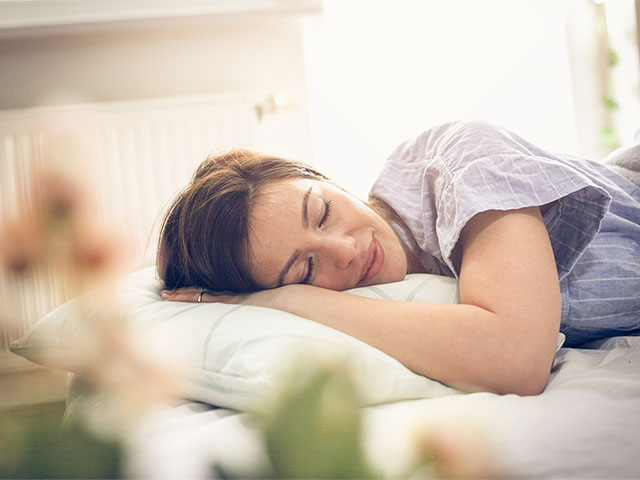
Those who sleep well also do something for their beauty – many consider this statement to be a myth. However, doctors and researchers are certain that beauty sleep really does exist. Because during sleep a hormone is released which ensures that our skin can regenerate.
“Sleep is important for the recovery function of our body in every respect,” says Richard Rohrer, neurologist at the Centre for Sleep Medicine at Saarbrücken Hospital. “Those who sleep too little suffer more from concentration disorders during the day, for example.
Everyone knows the superficial consequences of sleep deprivation: pale and dry skin, rings under the eyes – a look in the mirror is often sobering after too short a night. “During sleep, a growth hormone is released which ensures that our skin can regenerate,” explains Jürgen Zulley, sleep researcher at the University of Regensburg. “If we sleep too little or the deep sleep phase, which is most important for the release of the hormone, is disturbed, this is immediately noticeable: The skin becomes thinner and wrinkles form”.
From a cosmetic point of view, precautions can therefore be taken to ensure optimal skin regeneration – and thus perfect beauty sleep. “At night you use a different skin cream than during the day”, says the cosmetician Gabriele Bergmann from the German Beauty and Wellness Farm Association in Bad Kissingen. “During the day, our skin needs protection from UV rays, dirt and other environmental factors. At night, when the skin is recovering, regenerating active ingredients such as ribonucleic acid come into play.”
Not all creams are the same, they have to be adapted to the corresponding needs. According to the expert, it is important to remove make-up from the skin before going to bed: “If you don’t remove make-up thoroughly and clean the skin, the pores will clog up.
The sebum flow is not guaranteed.” The result: pimples and blemished skin. Lack of sleep also has other effects on appearance: It can even cause overweight. In sleep, on the other hand, you don’t feel hungry. A hormone also ensures this. “This makes it possible to hold on for ten hours without going to the fridge,” says Zulley.
Every person needs a different amount of sleep. Seven to eight hours is the average. But there are also short sleepers, who manage with five or six hours, and long sleepers, who need up to ten hours. The experts do not share the assumption that you sleep less in old age: “The amount of sleep required does not change,” Rohrer clarifies. “Older people sleep more often during the day, which working people, for example, cannot do. Therefore they do not need so many hours at night. Also in the age the sleep is not so deep any longer.

It’s easy to test whether you sleep enough: “If I feel fit and efficient during the day, I’ve had enough sleep at night,” says Zulley. However, a midday low is normal, and a small nap at noon is quite permitted.
If you want to sleep restfully, you need a quiet sleeping environment. “The more I am disturbed, the more restless the sleep,” says Rohrer. Ideally, for example, no clock is visible or audible. The room should be cool, but not too cold, and light-insulated. A snoring partner is also considered a disturbing factor.
“You should only go to bed when you are really tired,” says Rohrer. In order to optimally prepare the body for sleep, one should not roll over any more problems in the evening, if possible, but only perform relaxing activities, such as reading a book or watching TV – so that the body comes to rest. “If you do sports too late, your body is heated up.
It can be difficult to fall asleep.” Sport itself, however, promotes restful sleep: “Lightly trained people sleep better”. Even those who eat early in the evening sleep better: “Food keeps our digestive tract awake”. In addition, you should avoid caffeinated drinks after 5 p.m. if possible.
Beauty sleep for your skin!
What kind of cream do you prefer overnight? What skin sensation would you like to wake up with the next morning? We will tell you the difference between a Sleeping Cream and a Night Cream.
Do you like beauty sleep? What is the difference between a Sleeping Cream and a Night Cream?
A night cream is usually richer and uses the nightly rest period to regenerate our skin. In doing so, it responds to different care wishes: While one night cream significantly reduces the feeling of tension, the other reduces the depth of wrinkles.
A Sleeping Cream has a modern and super-light formulation that puts the skin into a beauty sleep. It has a full and nourishing effect on your skin and is completely free of lipids.
Professional tip: Even during a Sunday nap on the couch, Sleeping Cream gives you a quick beauty upgrade.



